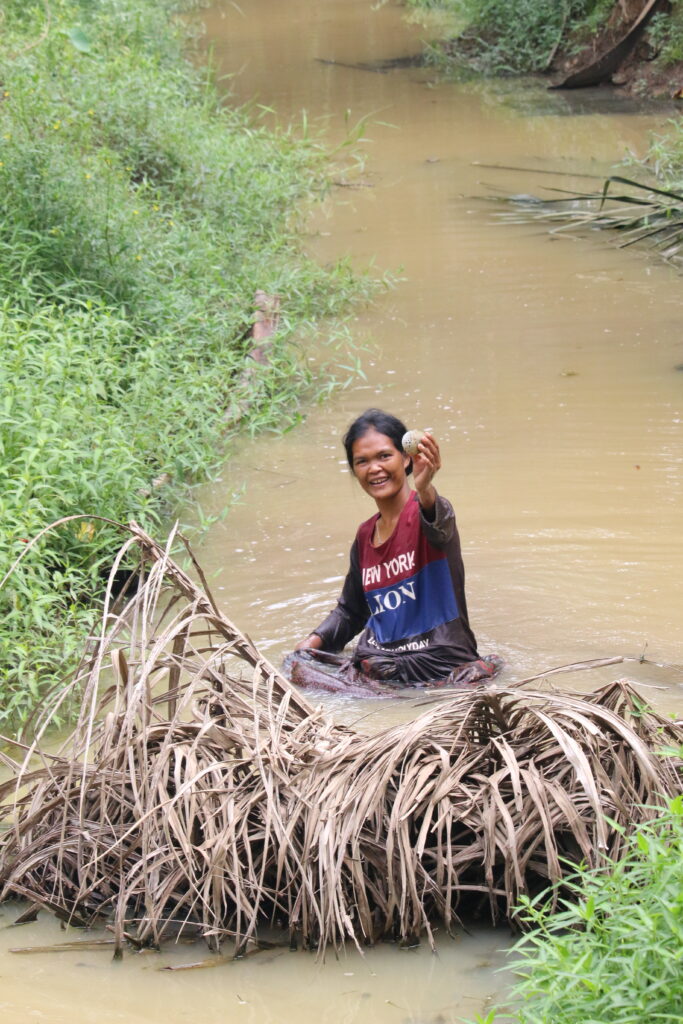Just imagine an ancient tradition, catching fish without using nets, spears, or other sophisticated tools. Only bare hands and skills that are passed down from generation to generation. This is Ngakop Ikan, a unique ritual from The Inner Tribe Jambi. In the rivers flowing in the forest, they hunt fish in a way that has never changed since their ancestors. Not only just catching fish, Ngakop Ikan is a symbol of their closeness to nature while maintaining the ecosystem.
Injin's hands were so skilled at feeling the murky water. The canal around the palm oil plantation had been filled with water from the river not far from the settlement. In less than ten minutes, Tuti managed to find fish on the edge of the canal.
“I got it,” Injin shouted from the edge of the canal.
The Ngakop Ikan tradition is not just a daily activity; it is also an important source of animal protein for the community. The fish they catch play an important role in maintaining health and immunity. For them, this activity is often done when there is no other work.
"If there are no activities, then we go to Ngakop Ikan," explained Sri Bungo, a member of the Suku Anak Dalam community from Dwi Karya Bhakti Village. The fish caught are usually cooked in the forest or brought back to the settlement for personal consumption. Interestingly, they do not sell the catch. All fish are only used to meet the daily needs of the Suku Anak Dalam community. This reflects a sustainable and community-oriented way of life.
However, this tradition also faces challenges. When the river overflows, catching fish becomes difficult. While when the water recedes, they find it easier to find fish at the bottom of the river. Sri Bungo said that they have another way to catch fish in small canals. They will use tuba roots to make the fish dizzy because of the sap that comes from the tuba roots.
"The tuba roots are beaten with wood until the sap comes out, then the fish will become dizzy and easy to catch," said Sri Bungo.
“Catching fish "There is no specific time. We can do it from morning to evening or noon to afternoon. The fish we get are diverse, such as snakehead fish, pufferfish, baung, and limbat," he explained.
The Anak Dalam tribe has unique skills in recognizing fish species and catching them, which are often not possessed by outsiders. They have developed effective ways to catch fish using only their hands, creating a close relationship between them and the environment. This tradition not only highlights skills, but also local wisdom rooted in a deep understanding of the river ecosystem.
In the context of environmental sustainability, the Ngakop Ikan tradition is very much in line with the principles of natural resource protection. This is regulated in Law No. 31 of 2004 concerning fisheries and Law No. 45 of 2009, which prohibits fishing using chemicals or other destructive methods. With the Ngakop Ikan technique, they maintain environmental sustainability, making it an environmentally friendly practice.


